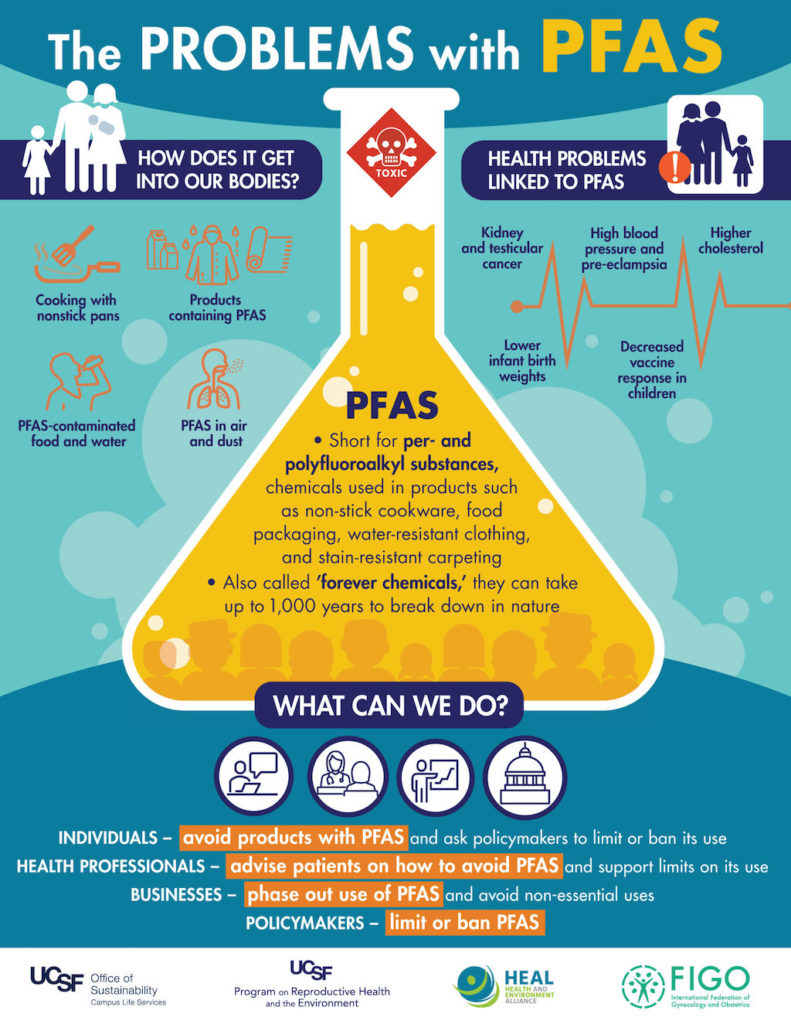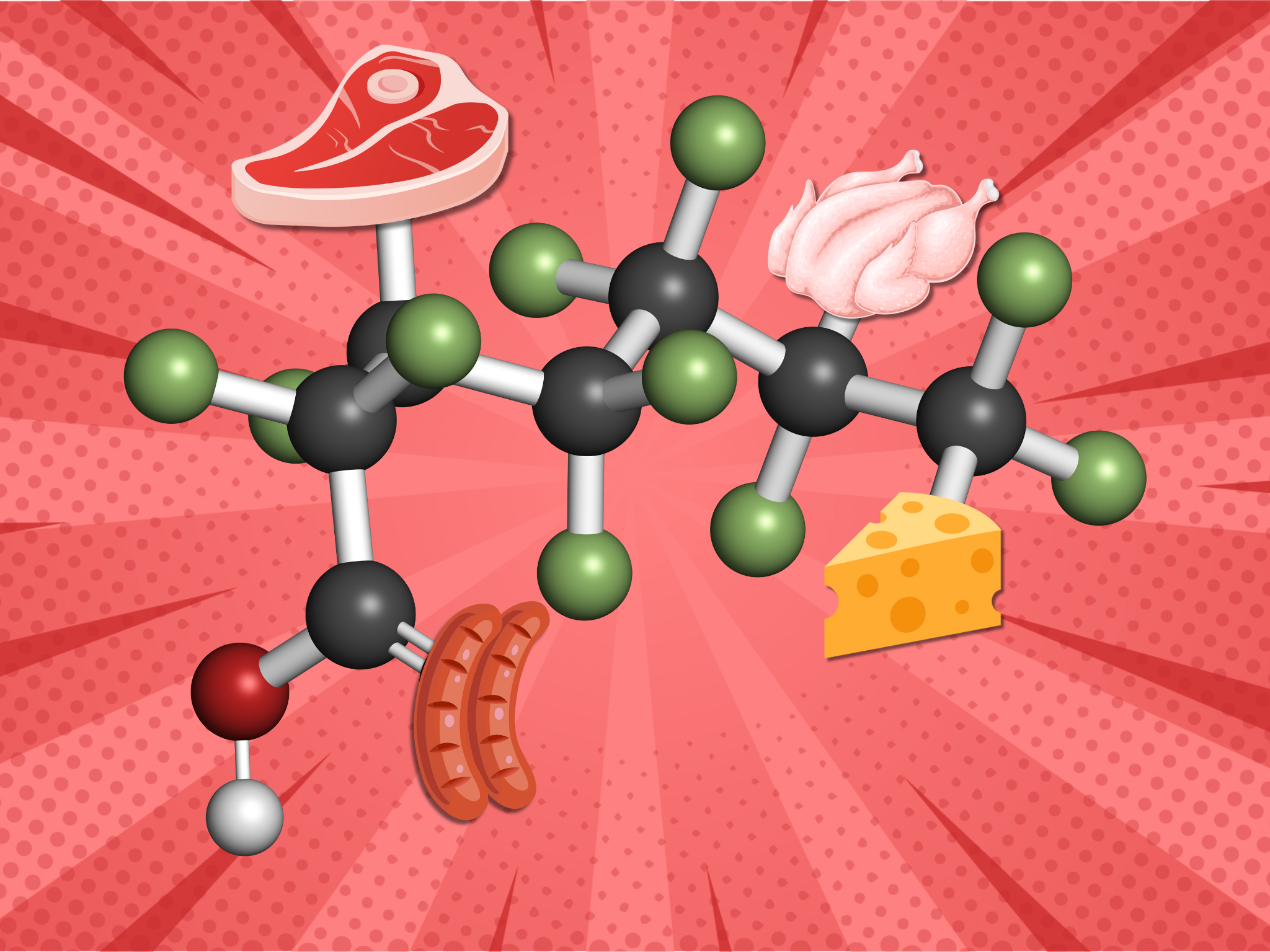St Gallen: Swiss Canton Bans Meat & Milk Sales After Finding High PFAS Levels
4 Mins Read
A Swiss canton has banned the sale of contaminated meat and dairy with high levels of ‘forever chemicals’, calling for intervention on a national level too.
St Gallen, the canton in northeastern Switzerland, has implemented a ban on sales of meat and dairy with higher levels of PFAS than the maximum permitted limit, after finding excessive amounts in these products from five farms.
PFAS (or per- and polyfluoroalkyl substances) are a group of 15,000 ‘forever chemicals’ – named so as they don’t naturally break down and are proven to accumulate in our bodies – that are used to make water-, stain- and heat-resistant products.
These chemicals are linked to serious health issues, like kidney disease, liver damage, thyroid problems, cancer, neurological damage, autoimmune disorders, birth defects, and developmental issues.
In Switzerland, the federal government in February set limits on maximum PFAS levels in certain food products, which came into effect last month. Following that, the canton of St Gallen has found dangerously high amounts of PFAS in animal products from the northeast part of the canton. As a precautionary measure, it has introduced a ban on products from these areas.
Extremely high PFAS levels threaten public health

In the municipality of Eggersriet, high levels of PFAS contamination on farmland and water were discovered three years ago. After stepping up its investigation, the St Galle government found that the contamination expanded to other areas too, namely Mörschwil, Untereggen, Goldach, Altenrhein, and St Margrethen.
The canton found “elevated or excessive” levels of PFOS – a harmful PFAS chemical – in meat and milk from some cows and cattle grazing in farms with contaminated areas, as well as in the soil and spring water.
The local government suggests that the cause could be the use of sewage sludge from PFAS-contaminated wastewater treatment plants, which was allowed to be spread on agricultural land as fertiliser until 2006.
According to federal regulations, the maximum amount of PFOS allowed in groundwater is 0.3 micrograms per kg. But tests of meat samples from the five farms showed levels between two and 12 micrograms per kg – up to 40 times higher than the legal threshold.
To safeguard public health, St Gallen says the affected farms and companies can only sell their meat and milk for human consumption once the PFAS levels in the animals are reduced to the maximum permitted limit. It will ensure compliance via on-site inspections and laboratory analyses.
The canton also adds that companies aren’t allowed to shift and remove soil or excavated material from the contaminated land without permission.
To support the businesses affected, St Gallen is offering bridging loans to farms. In the meantime, it recommends these farms grow food and feed the animals from the municipality’s drinking water. They should also be grazed on uncontaminated land if possible.
Plant-based meat and dairy to the rescue?

The canton is now in contact with Agroscope, the federal agricultural research centre, to explore alternative production models, since farms across Switzerland will likely be affected by some form of PFAS contamination.
Additionally, it is calling on the national government to implement a national action plan to tackle the country’s growing PFAS problem. While there are maximum limits for certain foods, there’s no such threshold for meat and dairy products.
St Gallen says a uniform national approach is key, as is defining maximum levels for animal products as soon as possible. “Only with national guidelines can the cantons implement food law in a harmonised manner and protect the health of consumers as best as possible,” it states.
A study published earlier this year found high levels of PFAS in human bodies, with diets rich in processed meat (and non-processed pork) and butter likely to increase the amount of these chemicals. “We need more public health monitoring, especially of healthy foods, to make sure we don’t have unintended chemical exposures in what we know are foods that are healthy in a lot of other ways,” Jesse Goodrich, a co-author of the study, told the Guardian.
St Gallen’s response to PFAS contamination comes amid reduced animal consumption in Switzerland, with 58% of its citizens consciously avoiding meat, dairy and eggs several times a month, as per a 2,221-person survey in January. The trend is driven by the so-called ‘substitarians’ – omnivores who eat plant-based meat, seafood and dairy – who make up 56% of the population.
While climate change is the key driver, health is third-highest on the list of motivations. For over-45s, though, the latter is the main reason for eating more plant-based meat and dairy analogues. Diet is a major source of PFAS, and research has found that vegans may have lower levels of these chemicals than omnivores.
Plenty of companies are catering to these needs, from local favourites like Planted (which has raised over $100M), New Roots and The Green Mountain to international players like TiNDLE Foods and Redefine Meat.



